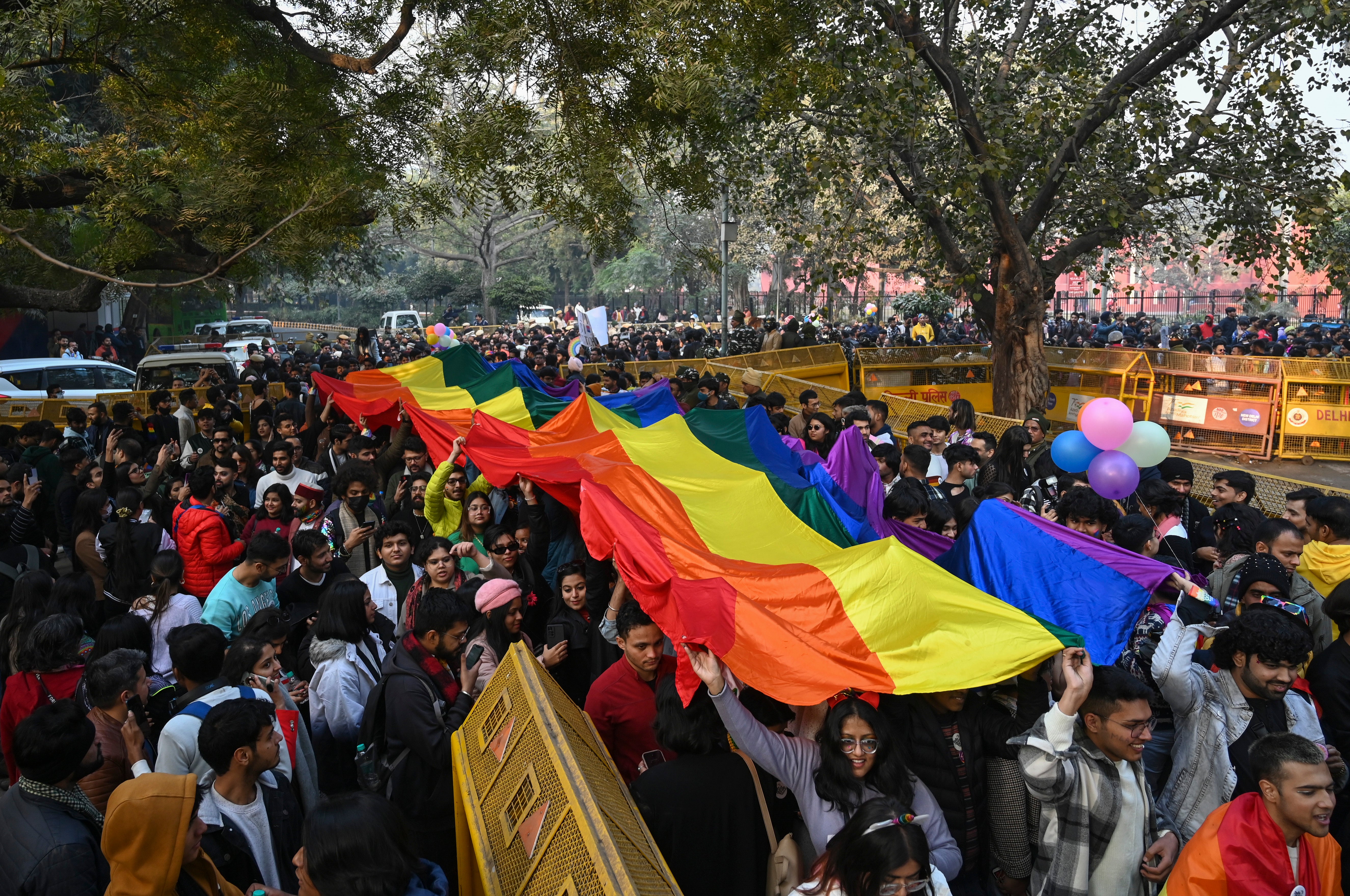Trans women’s arrest sparks backlash in India
Hyderabad police criticised after senior officer’s comments to media about trans people having ‘biological deformities’

Police officials in the southern Indian city of Hyderabad are facing criticism from LGBT+ activists for arresting dozens of trans women and accusing them of “pretending to be” transgender.
Hyderabad police arrested at least 19 trans women and then accused them of extortion and begging on the city’s streets.
On 19 August, Chandana Deepti, a deputy police commissioner posted in Hyderabad, held a press conference and announced the city police had cracked down on what it called a begging and extortion racket and subsequently arrested 19 people she claimed were “pretending to be transgender persons and extorting money”.
The News Minute (TNM), a news portal that focuses on ground reports from southern India, quoted her as saying that the police “suspect” two of the 19 accused to have a trans identity as they had undergone gender-affirmation surgeries.
“The rest of them have confessed that they are males. They were disguised as women to make people believe that they were transgender. That’s how they were extorting (money from people),” she said.
However, Simran – who identifies as a trans woman and is working to free the accused – told local media that the arrested individuals were forced to confess.
India’s transgender community has historically been marginalised and faces discrimination across social, economic and political spheres. The country’s transgender population, according to the 2011 census, constitutes approximately 488,000 individuals. Only a small fraction of this group has access to employment opportunities.
Ms Deepti said the detained individuals were sent for a “medical examination” to determine whether they were transgender or not.
The officer also told TNM that trans persons are people with “biological deformities” who do not have “fully developed [genital] organs”, are “not of any particular gender” and have a “tendency of dressing up like women”.
After her comments at the press conference became known to a wider audience, the senior officer was accused of disregarding India’s laws designed to protect trans people.
Current Indian laws, as enshrined in 2019’s Transgender Persons (Protection of Rights) Act, affirm the rights of transgender individuals to their gender identity regardless of whether they have undergone any gender-affirming surgeries or medical procedures.
LGBT+ activists panned the officer for her lack of understanding of trans identities and highlighted the lack of sensitivity training of police personnel when dealing with transgender individuals.
“The tragedy of friendly policing in Hyderabad continues to force voilence on the population. Where is the Telangana Police Manual with procedures the police follow?” asked one user on X, formerly Twitter.
“A lot of trans persons continue to have sexual organs which have been there since birth. That does not in any way make them less of a trans person. Your genitals are different from what gender you self-identify with,” Meera Sanghamitra, trans rights activist and convener of the National Alliance of People’s Movements in Telangana, told TNM.
She also explained that the police conflated trans persons with intersex persons. “These are two very different categories. Some trans persons can be intersex persons and vice versa. But all intersex persons are not transgender persons, neither are all trans persons intersex.”
Intersex people are not born with a sexual anatomy or biology that can be typically described as male or female, according to the UK Intersex Association.
In 2014, the Indian Supreme Court recognised transgender individuals as a third gender and granted them legal recognition. This was a significant step towards acknowledging their rights and identity.
According to a 2018 study by the National Human Rights Commission of India, a staggering 96 per cent of transgender individuals face job rejections, compelling them to resort to poorly compensated or demeaning means of earning a livelihood, such as traditional performers, sex work or begging.
“Around 80 per cent of transgender people in India are either engaged in sex work or begging, and a large number of them face gender-based abuse and violence,” Mumbai-based activist Abhina Aher told independent media platform openDemocracy in April this year.
Join our commenting forum
Join thought-provoking conversations, follow other Independent readers and see their replies
Comments


Bookmark popover
Removed from bookmarks